Karn - the tragedy of the unsung
I often feel that all Karn ever sought was a place he could call home, a space where he truly belonged.
In the great annals of mythology, beyond the awe of flawless heroes, it is often the wounded figures who seize our hearts. They remind us of our own fragility, leavening tales of impossible valour and magic with the quiet resonance of human longing. Among this galaxy of heart-stealers, none shines — or breaks us —like Karn.
His tragedy is not merely that he was born of royalty, only to be abandoned by his mother and raised in anonymity as a charioteer’s son. It is in what he makes of this fate—the choices he takes, the truths he clings to—that his story gathers its weight. A parable of destiny, of life’s cruel cards, of the lessons and pitfalls each choice carries.
Yesterday, I saw his story retold on stage in a form that defied description. Karn. Written and directed by Kulvindar Bakshish Singh, this reimagining does not just narrate his tale—it listens to his heartbeat.
In the boundless canvas of the Mahabharata, where right and wrong blur like dust across the battlefield, Karn stands apart: loyal to those who claimed him, defiant against the gods who denied him. His life becomes a hymn to survival, a testament to compassion, a sacrifice that asks for nothing in return.
Three extraordinary actresses—Vineeta Joshi, Noiyrka Bhateja, Chandni Tiwari—embody him and the many voices around him: mother, friend, rival, beloved. Their bodies shift and transform through the muscular poetry of Mayurbhanj Chau, the fierceness of Kalaripayattu, and the sharp, percussive grace of Thang-Ta from Manipur.
Theatre, suddenly, is not merely recited—it is fought, danced, endured.
The play captures, with stunning force, the contradictions of Karn’s life: poetry woven with combat, music threaded through grief, dialogues that wreck the heart.
Karn is discarded by Kunti for being born out of wedlock. But he is taken in by Radha, a mother who doesn't distinguish him from her own son. It's a gift of life he never forgets.
On a competitive stage where his mastery is rejected because he is sudra-putra, he is given dignity and a kingdom to rule by Duryodhan. It's a redemption he never forgets.
Home on one side, honour on the other. These twin gifts anchor his destiny, locking his conscience and his choices in place.
For we must live true to ourselves. What the world does with our truths is theirs to bear.
And then comes Vineeta Joshi’s depiction of Karn.
She lends power to his tragedy, humility to his decisions, inevitability to his path. With each beat of her feet, each inflection of verse, each break in her voice, she bares Karn’s heartbreak and indestructibility at the same time.
You can see her weeping, her voice break when she tells Krishna to personally take his dead body, after the battle, and bury it in a place where no drop of blood had fallen, and where nothing grows, because he does not want a single shred of his anguish to find seed in anything living.
It's a performance of heartbreaking sensitivity and bravado.
Around her, the ensemble of thirty-seven characters is conjured with ease, each slip between roles startling in its precision. The director’s flourishes—small signs, layered symbols—enrich the narrative, turning a well-worn tale into a fresh excavation of meaning.
And in this stunning retelling, the epic bends back toward us. We see the futility of war, the mirage of absolutes, the ache of standing by our truths when the world clamors otherwise. Karn is not just remembered—he is revealed. A mirror of our own contradictions, our own quiet endurance.
And in that mirror, we find not just a hero forgotten by history, but a man who, in losing everything, finds the one thing no war could take away—dignity.
Epilogue -
Shows keep happening in various cities. Please look out! The next one is in Bombay at The Studio Theatre in NMACC on 4th September.
I write, so you can enjoy and expand your world. Would you like to support me? Well, here’s what you can do -
share this post -
tell me of your thoughts -
subscribe, if you love it

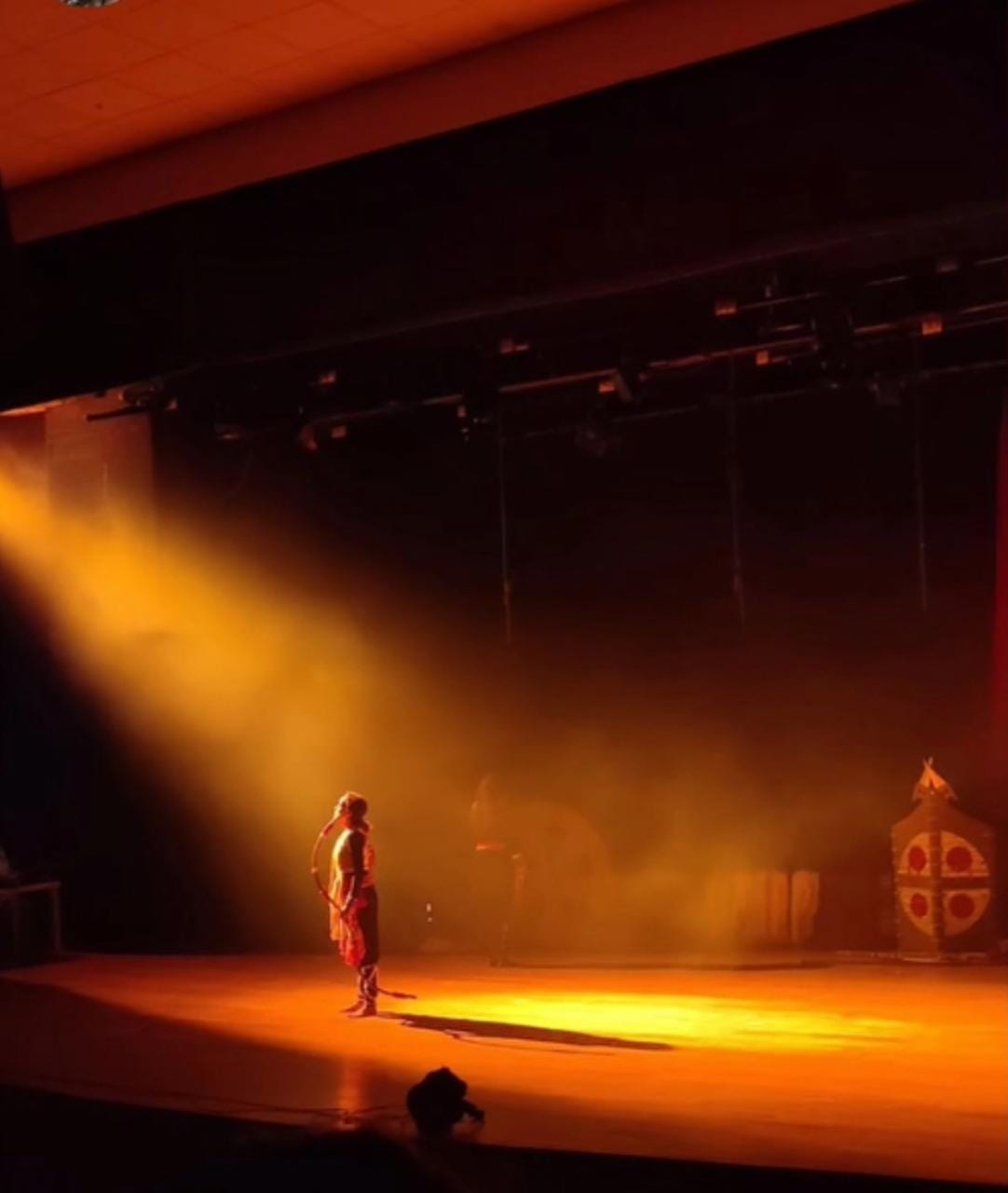
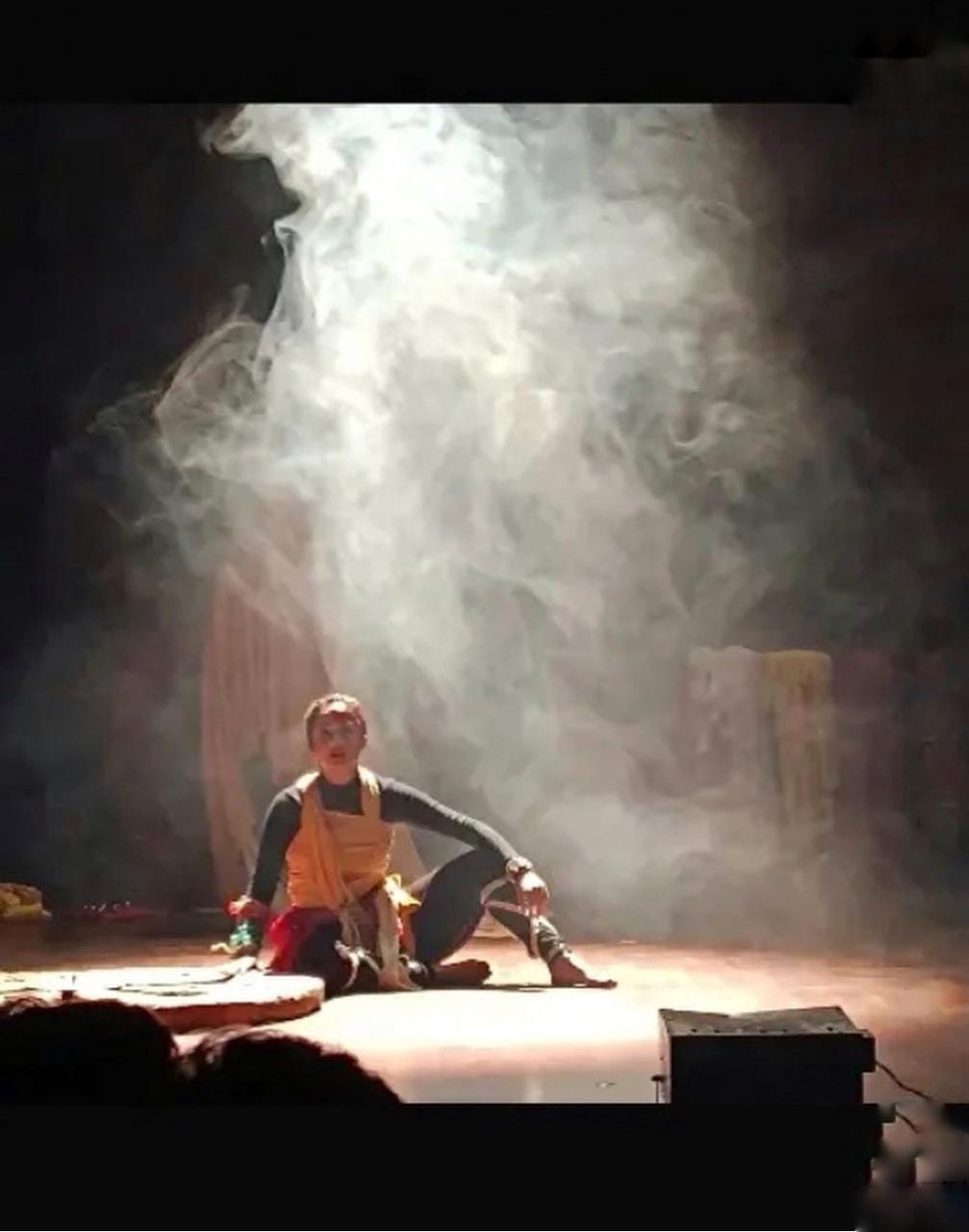
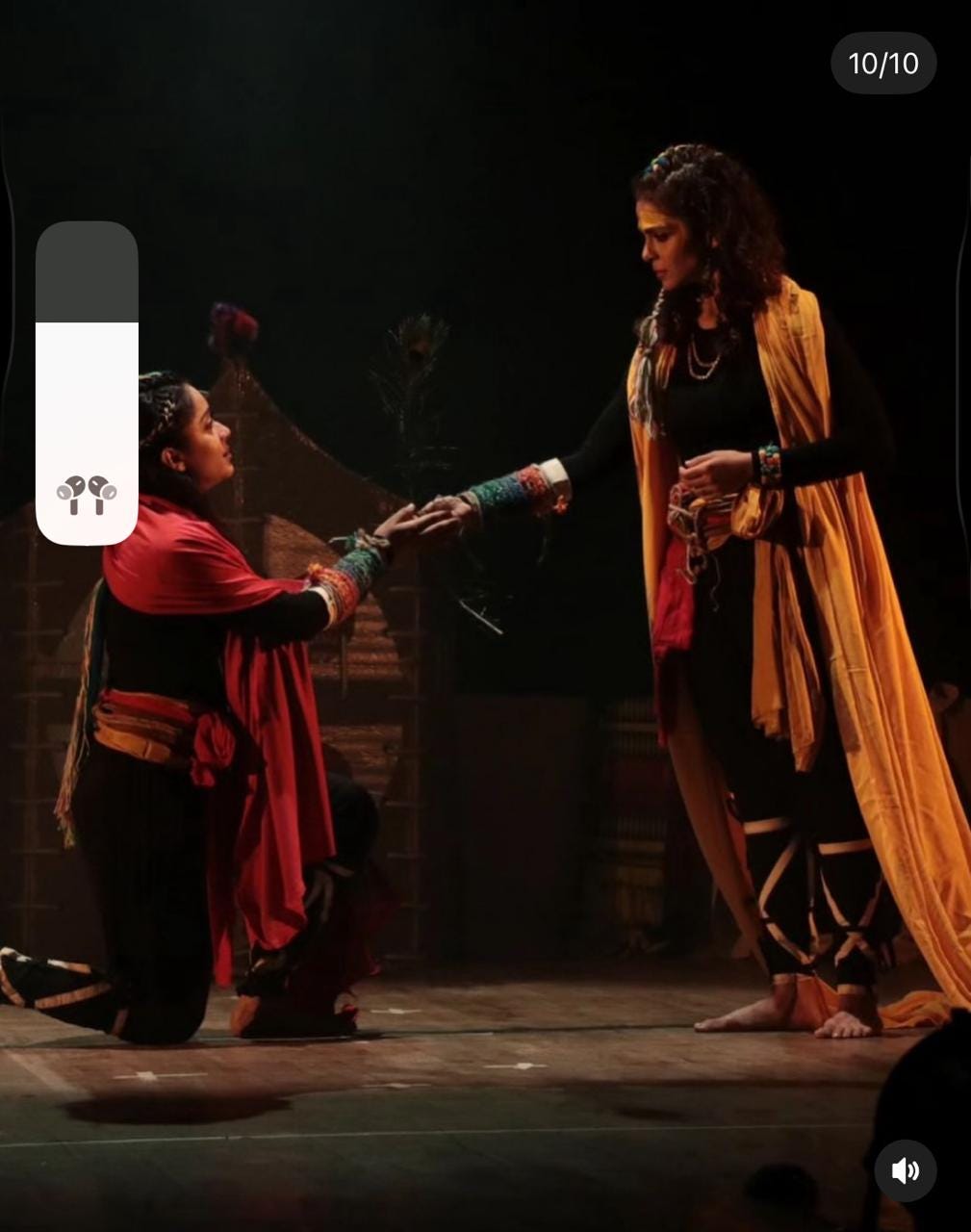

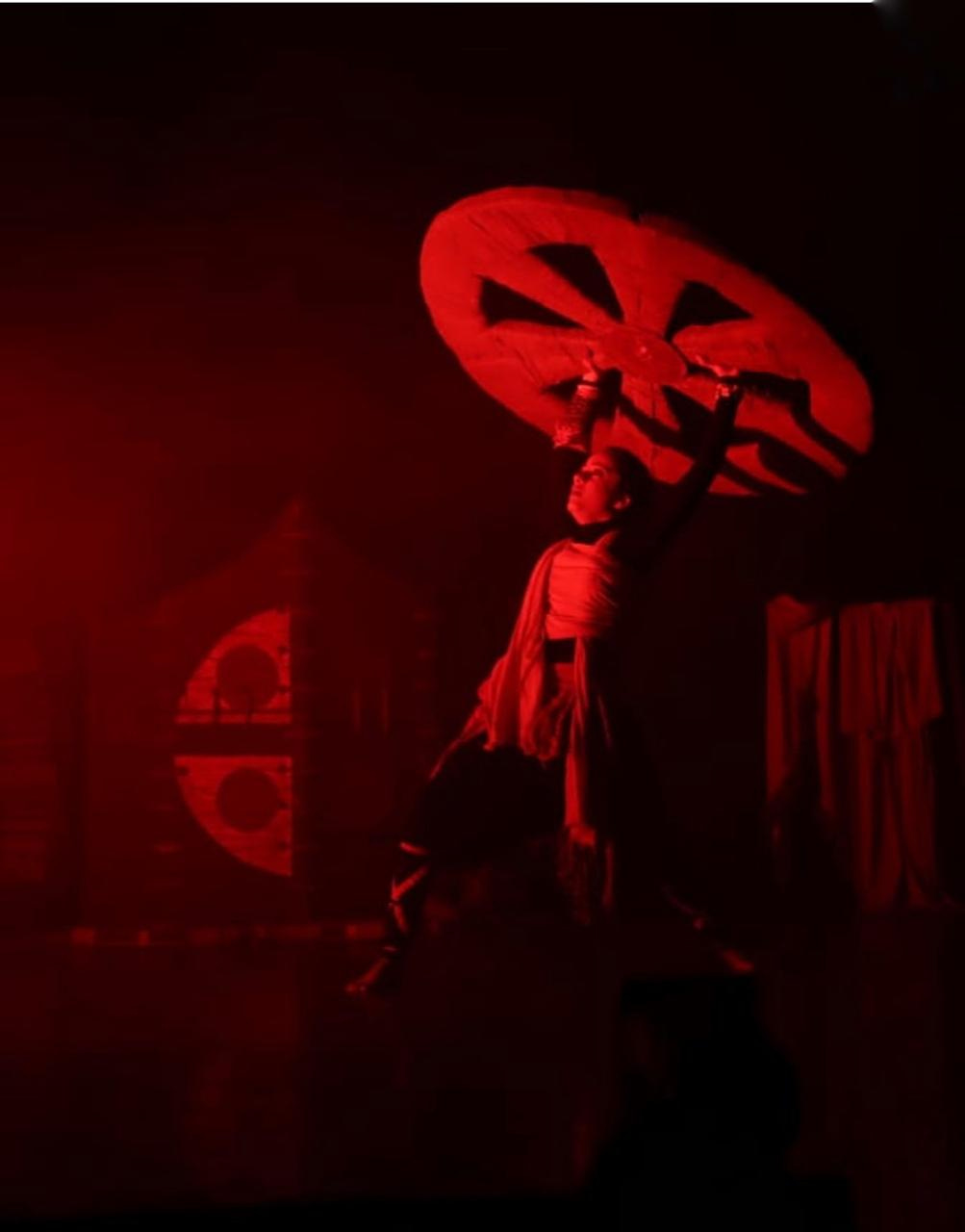
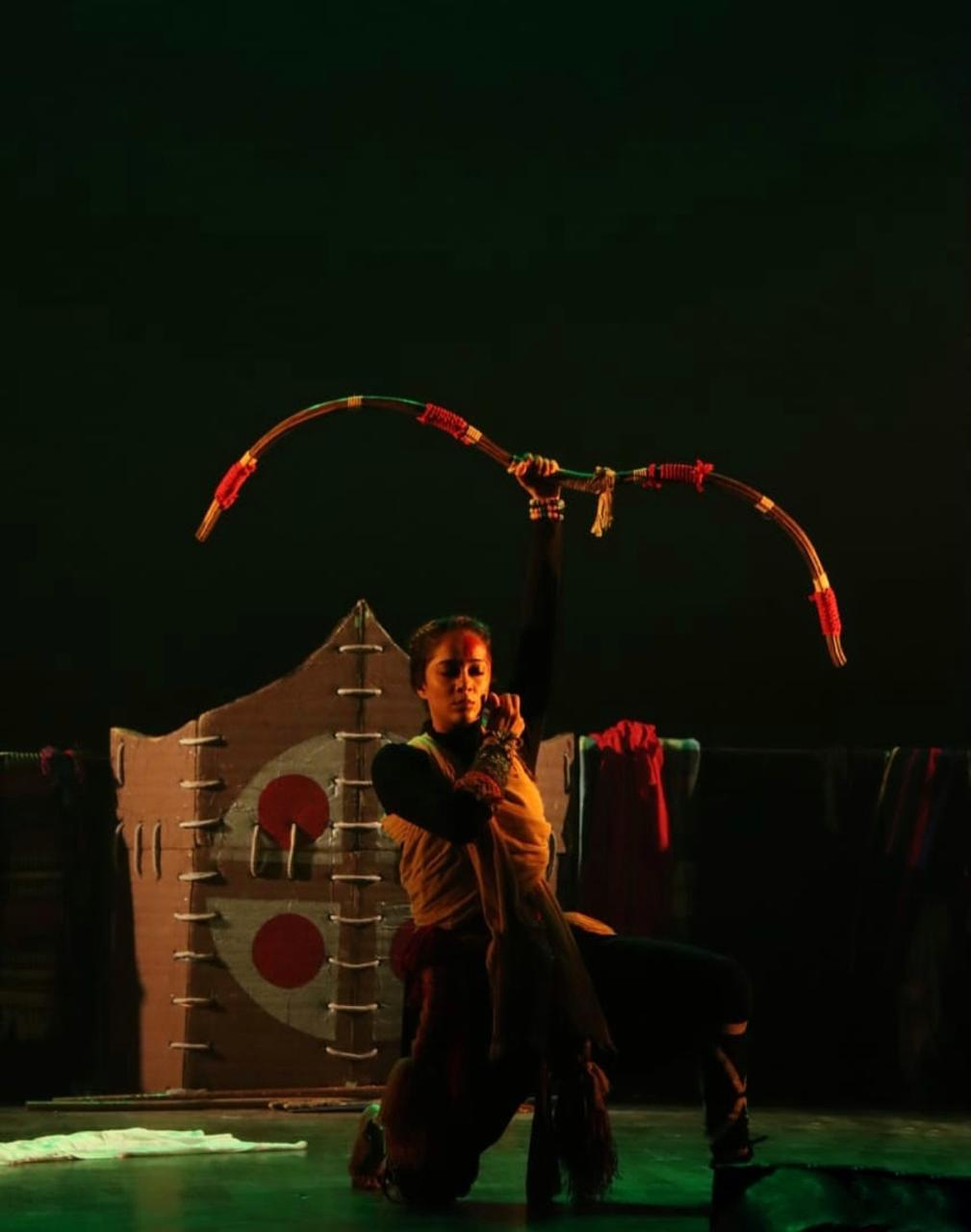
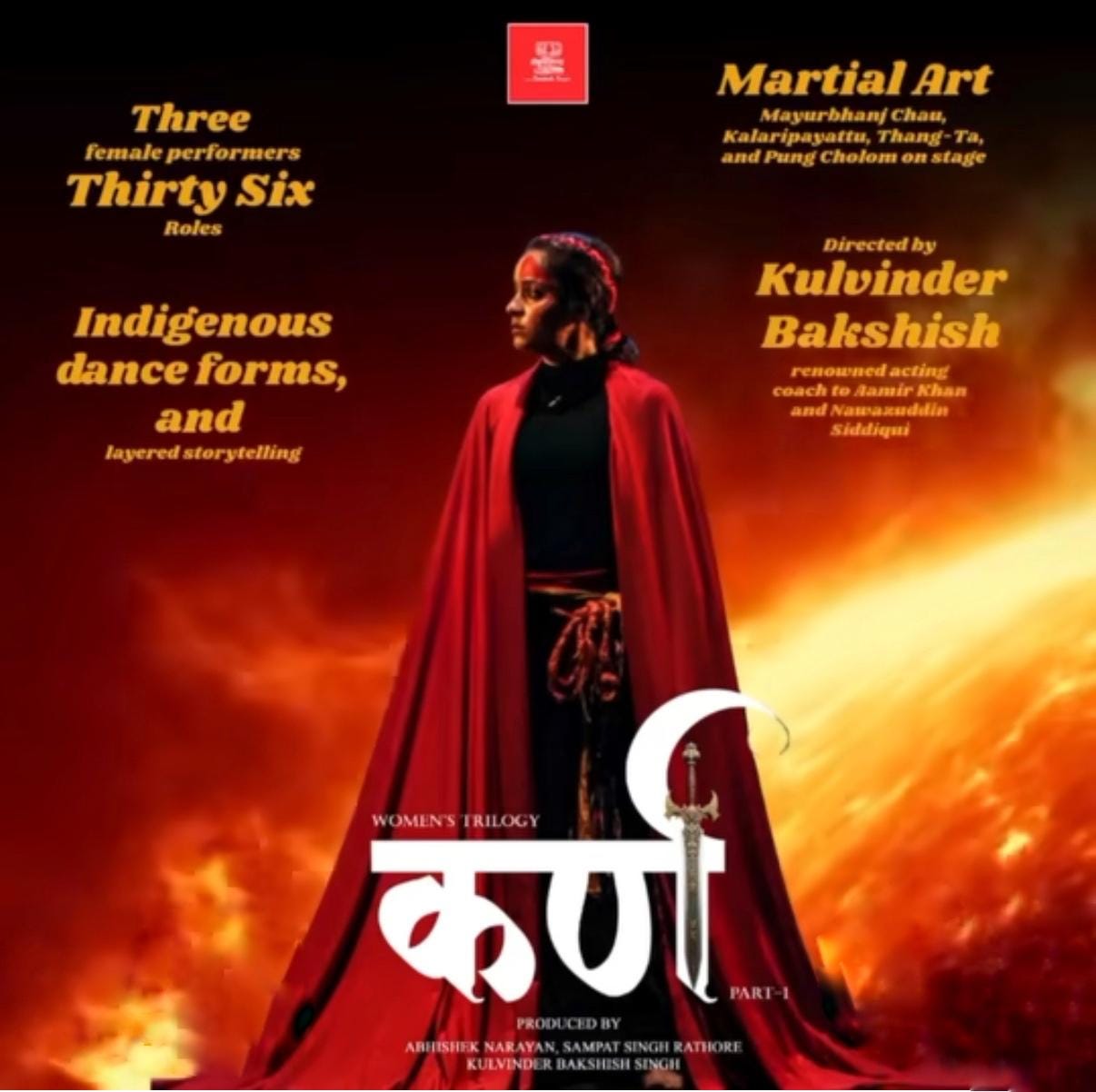
A suta is NOT a sudra.
Not a fisherman's son - a charioteer's son (suta- charioteer and bard)